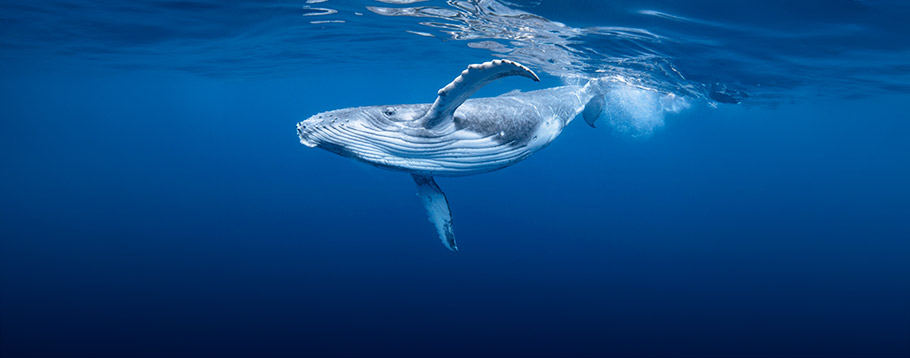
Frank Thomsen, Principal Scientist for underwater acoustics at DHI, recently participated in the third edition of the international conference OCEANOISE, where thought leaders from around the world shared their latest findings on the effects of human-generated sounds on marine life. Participants included regulators, industry representatives, researchers and NGOs, who all convened in Vilanova i la Geltrú, Spain.
The data presented during the conference shed light on the effects of anthropogenic noise throughout the entire marine food web, encompassing aquatic plants, plankton, invertebrates, fishes and marine mammals. These findings provide compelling evidence that in conjunction with many other pressures, human-generated noise poses a substantial threat to marine ecosystems and biodiversity. Furthermore, noise pollution is intensifying alongside the growing volume of global shipping activities and the rapid development of riverine, coastal and offshore energy infrastructures.
The OCEANOISE Conference Series Science Advisory Committee argues that technological solutions are available to start tackling this challenge. Through the deployment of advanced acoustic technologies and innovative strategies, it is possible to improve the acoustic balance of our oceans.
On World Oceans Day 2023, the committee will therefore call upon governments to take the following actions:
- Foster international collaboration: Initiate and support collaborative platforms enabling public administrations, industry leaders, scientific communities and NGOs to unite their expertise, resources and perspectives in developing effective noise reduction strategies
- Enforce existing or establish needed regulatory frameworks: Enact and strengthen legislation that addresses noise pollution in maritime sectors, setting clear guidelines, standards and enforcement mechanisms to ensure compliance and accountability
- Invest in research and innovation: Allocate substantial funding and resources to advance research into impacts of anthropogenic noise and the development and implementation of cutting-edge technologies that minimise noise emissions from shipping, wind farms, oil and gas exploration, and other human activities in marine environments
- Raise public awareness: Launch comprehensive educational campaigns to enhance public understanding of the detrimental consequences of human noise on marine life and the urgent need for collective action. Encourage responsible behaviours and sustainable practices among individuals, communities and industries
- Support sustainable practices: Promote and incentivise sustainable practices, such as alternative shipping routes, noise-reducing vessel designs and the use of low-noise technologies in energy infrastructures, to minimise the impact on marine ecosystems
Please reach out to Frank Thomsen if you want to know more about OCEANOISE, the call for action or DHI’s work to protect life under water from noise.